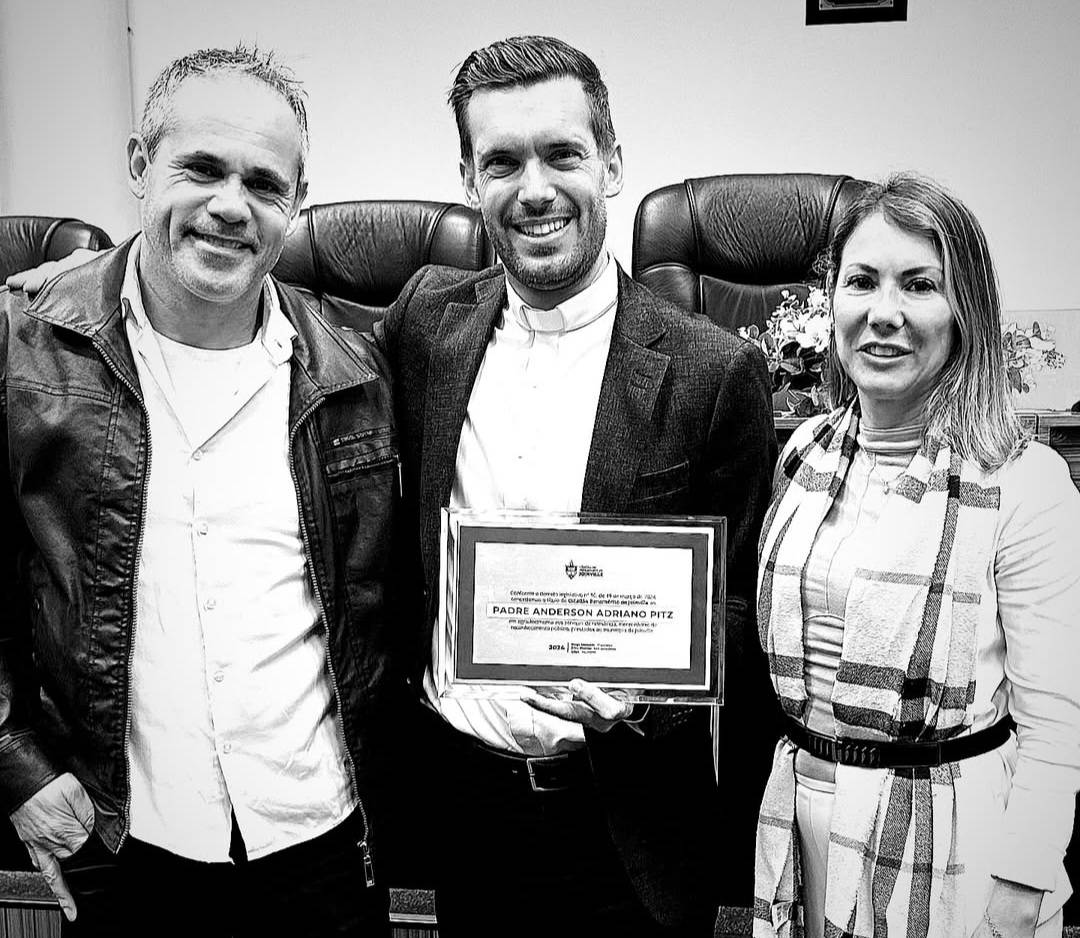SÃO PAULO – A Brazilian priest in the city of Tapurah, in Mato Grosso State, is being investigated by prosecutors after a video of him criticizing a homosexual TV journalist with a anti-gay slur went viral.
Father Paulo Antônio Mueller was preaching at the pulpit on June 13, one day after Lovers’ Day, a date when Brazilians celebrate love and romance. A short video of what seems to part of his homily shows him talking about the Catholic view on dating.
“Dating for us is not like Globo [a major TV network in Brazil] showed this week. Two viados [a Portuguese slur best translated as “faggots”], I’m sorry, two viados. A reporter with a little viado called Pedrinho, I mean, Felipe, saying: ‘Prepare lunch, I’m coming home. I miss you, Felipe.’ Ridiculous,” Mueller said.
The priest alluded to another video that became viral in Brazil last year. On Lovers’ Day in 2020, TV Globo reporter Erick Rianelli sent a message to his partner Pedro Figueiredo on air. The video was shared by thousands again this year.
Mueller told churchgoers to consult the Bible and see in the Book of Genesis that God “created man and woman.”
“That’s marriage. They can call the union of two viados and two lesbians the way they want, but not marriage. Please! That’s a lack of respect towards God, it’s sacrilege, it’s blasphemy. Marriage is something beautiful and dignified. Sentiment, love, is for a man and a woman,” he added.
The clip was shared by LGBT rights activists and spurred outrage in the South American country.
A few days later, Mato Grosso State prosecutors informed that they launched an inquiry to determine if the priest had perpetrated any crime.
“The Mato Grosso State prosecutors launched that investigation because the Supreme Court has recently decided that acts of homophobia should be treated in a similar way that acts of racism, which are crimes according to the Brazilian law,” explained Catholic lawyer Cláudio Langroiva Pereira, a professor at the Pontifical Catholic University of Sao Paulo.
Pereira said all citizens must be held responsible for their acts when “their rhetoric harms fundamental human rights.”
“I consider that he extrapolated the right to freedom of speech which the Brazilian State grants him. The Supreme Court equates homophobia to hate speech. His own institution, the Catholic Church, doesn’t authorize him to say such things,” he added.
Pereira, who is a member of the Archdiocese of Sao Paulo’s Justice and Peace Commission, added that “the institution of marriage has its own doctrine in the Catholic Church, and that many civil models of marriage doesn’t correspond to it.”
“But that doesn’t mean that people should be discarded by society. Pope Francis has been saying that everybody has a right to be welcomed and to live happily,” he said.
Father Antonio Manzatto, a theology professor at the Pontifical Catholic University of Sao Paulo, told Crux, “Freedom of speech is not an end in itself.”
“Freedom of speech is a tool for the building of a more democratic world. If some kind of speech is not able to build that reality, it cannot claim ‘freedom’. Or else we’ll ask for freedom of speech to tell lies,” he said.
Manzatto said that the Catholic Church opposes any kind of discrimination that may harm human dignity. He argued that the current political atmosphere in Brazil, impacted by conservative President Jair Bolsonaro’s rhetoric, somehow influenced Mueller’s words.
“That priest’s rhetoric is fully backed by the social segments that support the current administration’s absurdities. If several Evangelical segments notoriously support such policies, part of the Catholic Church also does,” he added.
João Victor Oliveira, a member of an LGBT Catholic movement in Brazil, said that one should not mention the right to freely express something that “is forbidden by law.”
“In a country where homophobia is a crime, when someone insists is manifesting such ideas by using religion as a disguise to a political agenda, what’s really being requested is a license to kill,” he told Crux, alluding to the high rate of killings of LGBT people in Brazil.
Oliveira added that Mueller “treated the journalist in an insulting way, with the intention of stigmatizing him.”
“Stigmas reduce our possibilities in life and are based on the idea that we’re less human than everyone,” he said
Cris Serra, who coordinates the Network of LGBT Catholic Groups in Brazil, noted that “this kind of manifestation at the altar is very frequent.”
“The difference is that it was recorded in video, because now Masses are being broadcasted on-line. But we [LGBT Catholics] know this kind of rhetoric very well,” Serra said, adding that several cases of suicide among LGBT Catholics are related to “hate speech that we hear in the Church.”
















